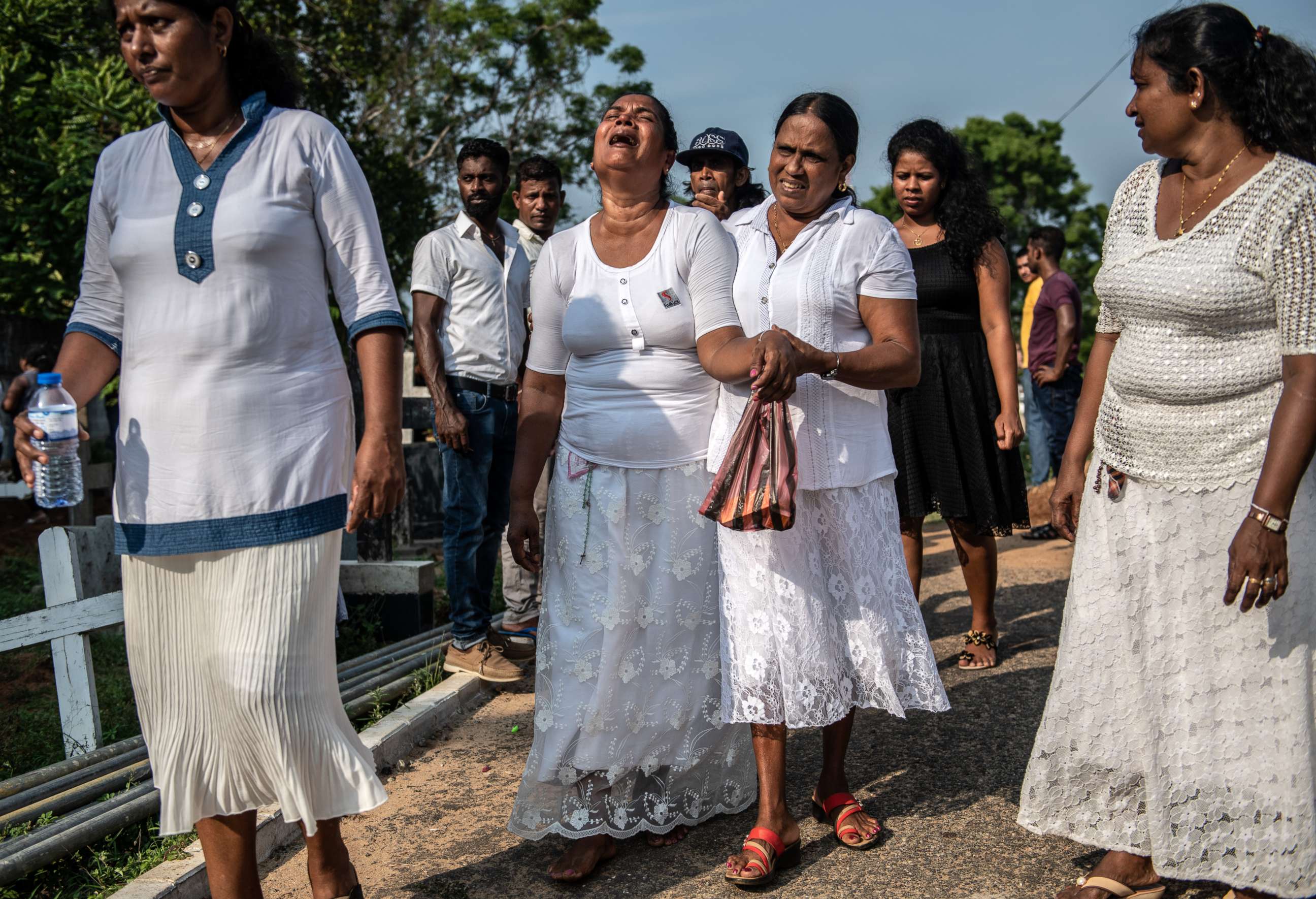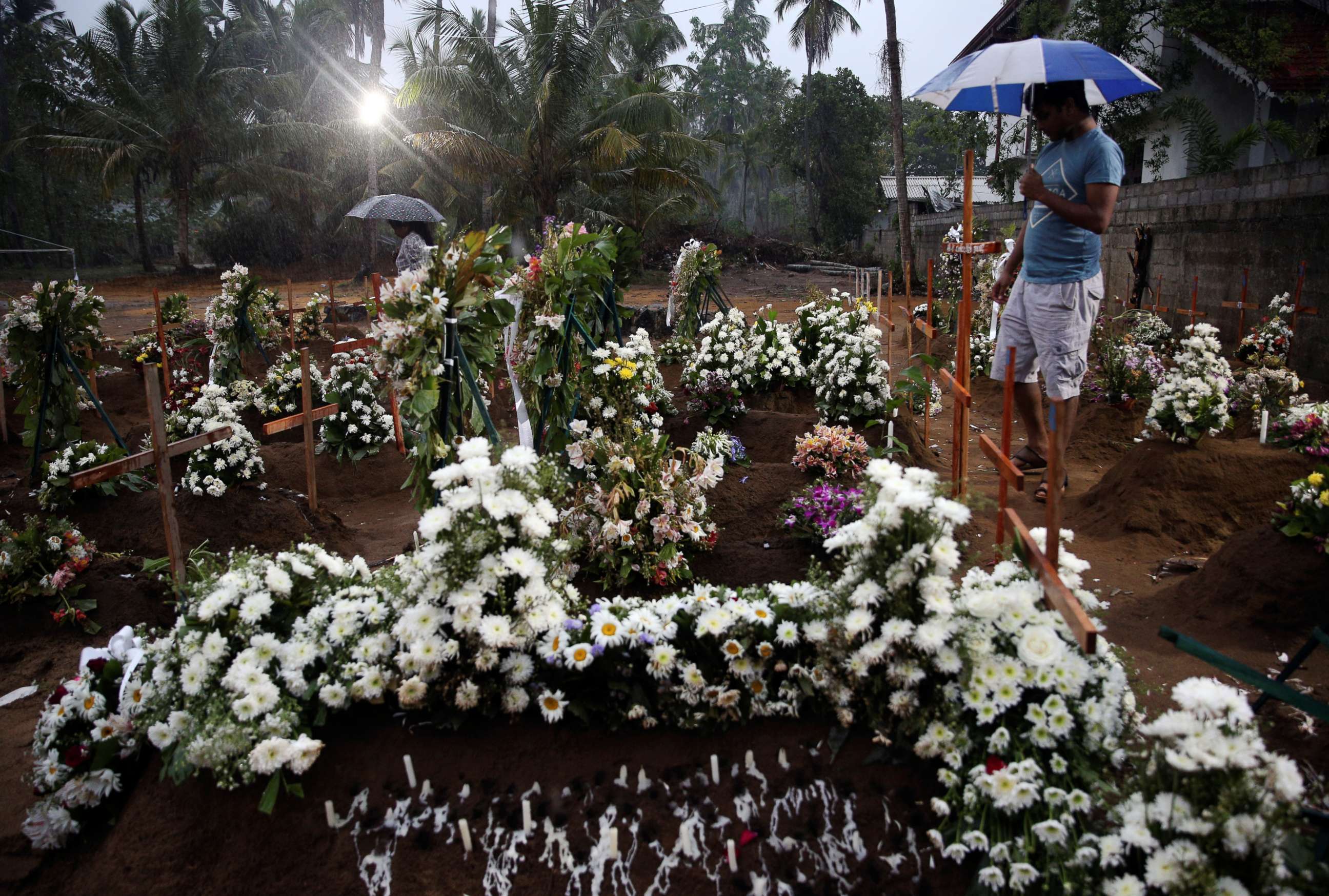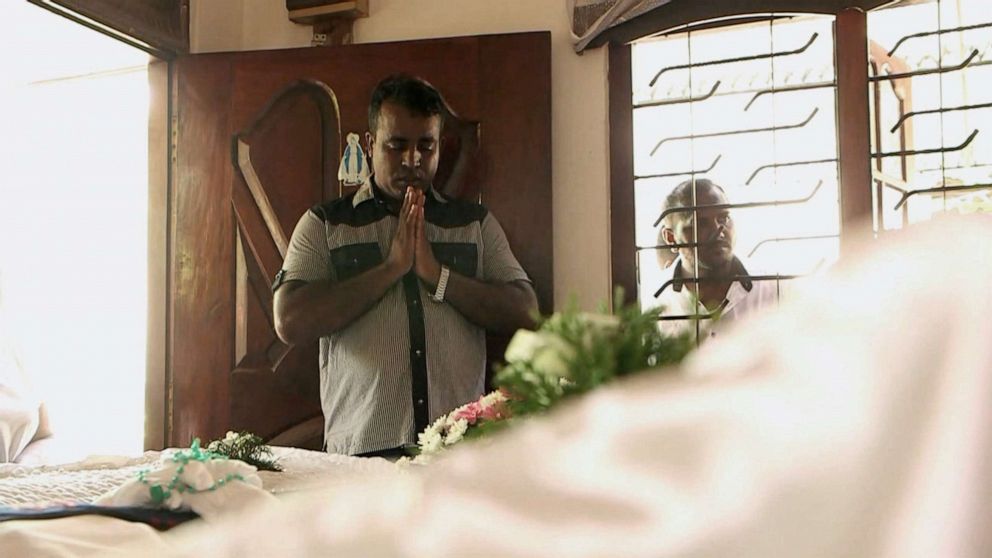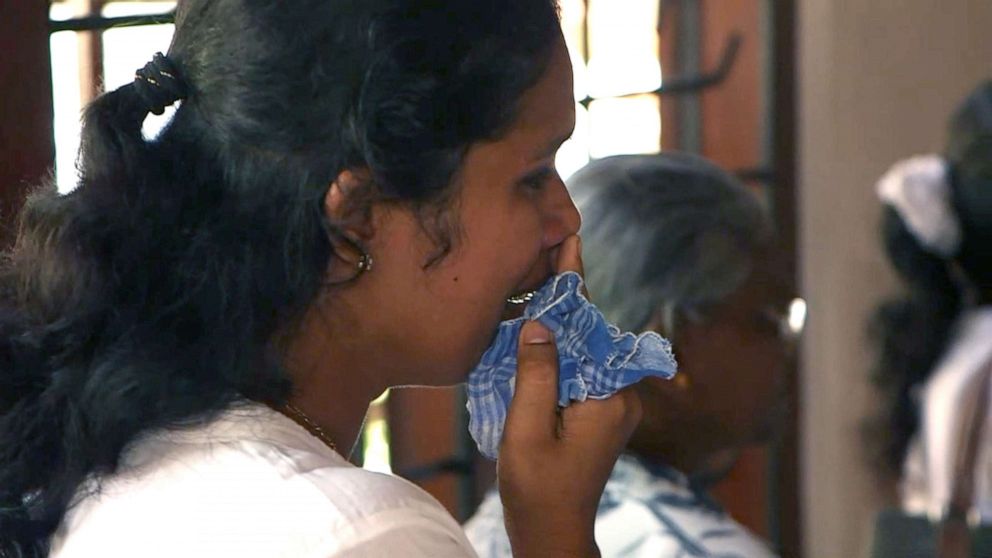Horror and failure in Sri Lanka: Reporter's Notebook
A reporter's analysis from the ground in Sri Lank after Easter Sunday attacks.
COLOMBO, Sri Lanka -- I’d never seen a dead child before. He was 7 years old, lying on a wooden table, dressed all in white. His body had been bound in white cloth, but his face was exposed -- smooth, young skin, already starting to decompose.
His lips were starting to whiten, and his eyes were closed, with that sunken look death gives. A rosary bead had been wound around his small, gloved hands, and flowers were placed at either end of his body.

He lay there between his two older sisters and mother, dressed similarly for this mourning ceremony. All four unaware, of course, of the endless procession of people shuffling past them in the small room, crying silently, muffling their tears as though for fear of waking them.
I’m not sure I felt just sadness in that moment. Sitting here writing this now, I only really remember feeling my heartbeat, how it quickened. It’s faster now as I write. I’ve realized what I felt most was anger.
I felt -- I feel -- angry on behalf of these people, for the reports of staggering incompetence that led to this tragedy.
The story of the coordinated Easter Sunday attacks across Sri Lanka that resulted in around 250 deaths feels, to me, less about some kind of resurgent ISIS, which claimed responsibility for the attack, than about extraordinary -- perhaps even willful -- negligence on the part of the government.

All attacks are in some way preventable, and there are plenty of examples of major terror attacks where important information was missed. But this one is in its own world.
An intelligence report that came nearly two weeks before the attack actually names one of the key assailants, possibly the ringleader. It doesn’t just give vague warnings; it talks about attacks on churches.
Local Muslim leaders had been warning authorities about him for years. In January, a house was raided here and 100 detonators, 20 liters of nitrate acid, firearms and over 100 kilos of explosives were discovered.

A police source told us one of the people arrested at that house may even have been one of the suicide bombers, although officials won’t confirm this. The safe house raided on the day of the attacks was linked with that earlier address.
Foreign intelligence and this country’s own police work was leading them in the same direction, yet nothing was done.

There are all sorts of suggestions and allegations floating around about why these things were missed. The president is now busy firing his defense and security teams, trying to prove to his people -- and perhaps even himself -- the situation is under control.
The added security measures and controlled explosions around town seem less about real intelligence and more about trying to be seen to "do something."
The government here is split, and elements of it have very dark histories. Different factions all hide vital information from each other.

There are perhaps important internal dynamics at play here, which are easily missed when ISIS grabs the headlines.
I hope what family that boy has left gets some real answers soon. I know I’d want them.




